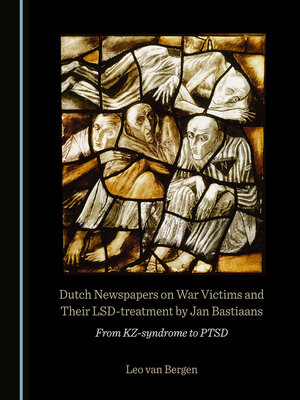Dutch Newspapers on War Victims and Their LSD-treatment by Jan Bastiaans
ebook ∣ From KZ-syndrome to PTSD
By Leo van Bergen

Sign up to save your library
With an OverDrive account, you can save your favorite libraries for at-a-glance information about availability. Find out more about OverDrive accounts.
Find this title in Libby, the library reading app by OverDrive.



Search for a digital library with this title
Title found at these libraries:
| Library Name | Distance |
|---|---|
| Loading... |
In the 1960s, it became clear that survivors of the concentration camps had developed psychological complaints. They were diagnosed with KZ-syndrome.Dutch psychiatrist Jan Bastiaans used LSD in his psychotherapeutic sessions with KZ-syndrome sufferers, who said they greatly benefitted from his treatment. This was, despite criticism from medical professionals, enough proof for journalists, regardless of their signature, to defend the drug's usage. Without the newspapers, LSD probably would have disappeared quickly as a medical tool.Over time, paradoxically, the cause-related diagnosis KZ-syndrome came to encompass more than just Holocaust survivors: soldiers, hostages, survivors of the Japanese camps, and the children of Dutch national socialists were all eventually included within the concept. It resulted in an enormous rise in patient numbers, and a blurring and eventual disappearance of the concept.This book explores the contribution of Dutch newspapers to the historical-cultural phenomenon of this rising focus on victims and victimhood, without which the later acceptance of PTSD – a symptom-related diagnosis – could not be understood.







